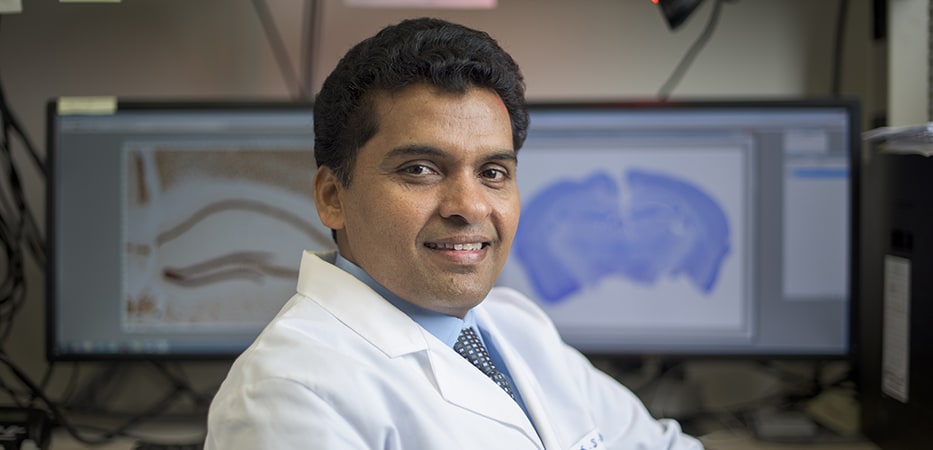Rouzer awarded postdoctoral fellowship from the National Institutes of Health

Siara Rouzer, PhD, a postdoctoral research associate at the Texas A&M University School of Medicine, was recently awarded an NRSA F32 Postdoctoral Fellowship from the National Institute on Alcohol Abuse and Alcoholism, part of the National Institutes of Health, for her research titled “Simultaneous prenatal alcohol and cannabinoid exposure and offspring corticostriatal neurocircuitry.”
It is already known that consuming alcohol during pregnancy can lead an offspring to develop a variety of developmental disorders, called fetal alcohol spectrum disorders (FASDs). There is also growing research surrounding prenatal drug exposure contributing to lifelong health risks and a shorter lifespan.
“When children are developing in utero, what their mother consumes can have an effect on their development,” Rouzer said. “In some ways, this is a very good thing, such as taking prenatal vitamins. Unfortunately, mothers can also engage in negative behaviors such as consuming substances like alcohol and marijuana, commonly referred to as cannabis.”
However, there is limited research surrounding the effects of the combined polysubstance use of alcohol and cannabis on exposed offspring. As this polysubstance use behavior becomes more widespread among young adults of child-bearing age, it becomes increasingly important to research these effects on the development of offspring.
This project focuses on the consequences of prenatal exposure to both alcohol and cannabis, specifically whether the offspring is more likely to engage in drug-seeking behaviors or develop increased motor deficits. “What makes this project so exciting is that so much of the data I will collect will be new to neuroscience,” Rouzer said. “Hopefully it will provide a foundational basis for future studies into this real-world pattern of drug consumption.”
The purpose of the F32 grant is to support the research training of postdoctoral candidates who have the potential to become successful, independent investigators in scientific fields. The grant allows the candidate to receive mentorship from a faculty sponsor, training and career opportunities, and institutional support.
Rouzer works in the lab of Rajesh Miranda, PhD, professor in the Department of Neuroscience and Experimental Therapeutics at the School of Medicine. Miranda will serve as Rouzer’s research sponsor during the three-year grant period.
“Siara is a great example of a well-trained and insightful new generation of biomedical scientists who are willing to wade into the real-world complexity of alcohol use, which is that alcohol is often used with other psychoactive substances,” Miranda said. “Increasingly, concurrent marijuana use is common, but we don’t understand the added risk posed by polysubstance use on pregnancy and birth outcomes. Siara’s research will focus on understanding any added risk of exposure to cannabinoids on the effects of alcohol on fetal development and adult neurobehavioral outcomes. I’m excited to serve as her mentor as she develops this new line of research.”
Rouzer earned a joint bachelor’s degree in psychology and English at the University of Mary Washington, a master’s degree in psychology and a doctorate degree in neuroscience both at Binghamton University.
By investigating this combined alcohol and cannabis behavior, Rouzer aims to find treatments for individuals with a history of prenatal polysubstance exposure to improve their overall quality of life.
“Many members of the Department of Neuroscience and Experimental Therapeutics have shared their time and knowledge with me, and that was instrumental in acquiring this federal funding,” Rouzer said. “I’m honored and elated to be involved with such a brilliant and collaborative department as I begin this research fellowship.”
Media contact: media@tamu.edu


